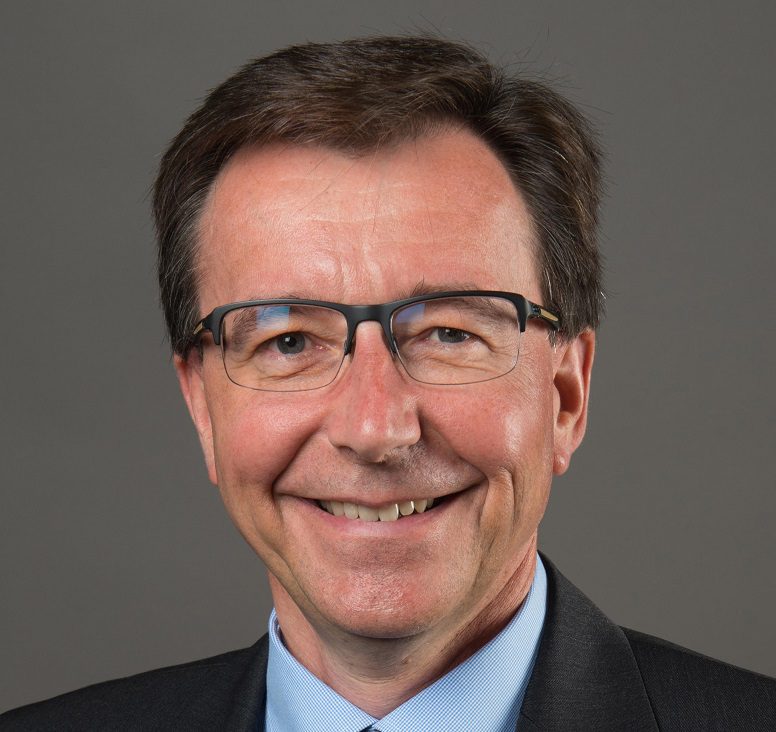And the Insurance Institute’s Established Leader award goes to…

There’s an old Taoist saying that if you want to run the world, let the world take its course and try to get out of the way of it.
In essence, that describes the humble, low-key, cooperative approach of John Taylor, who is the 2023 recipient of the Insurance Institute of Canada’s Established Leader award.
Taylor has been president of the Ontario Mutual Insurance Association (OMIA) since 2009. At the association of mutual insurance companies, he prizes working collaboratively with others. And he believes leadership involves removing obstacles in the way of his team accomplishing great things.
“Early on in my career, a couple of things resonated with me about how I like to be led, and that transferred into how I try to lead,” he told Canadian Underwriter. “And one of those things is, as a leader, when you see things preventing the people you work with from succeeding, you ask, ‘What can you do to move those barriers, or help [team members] over them?’
“Sometimes that means helping people develop. Other times, it means changing things so that they can move ahead.”
Whatever challenges his team members face, Taylor wants them to feel a sense of pride and accomplishment in what they do for a living.
“At the end of the day, they should go home feeling good about what they did and not worry about what they didn’t do,” he says. “For me, there’s always an opportunity for everyone to start again tomorrow. I truly value working as a team and succeeding together. I’m way more comfortable with that approach.”
An adjuster since leaving Wilfred Laurier University with a business degree in 1986, Taylor said he took a leap of faith and moved over to OMIA from his role as vice president of HR at Crawford Company Canada. Before his time at Crawford, he had been a claims adjuster at Adjusters Canada for 14 years.
Despite jokingly describing himself as “risk averse,” Taylor saw an affinity with OMIA because of his background experience in adjusting farm claims, and because of his family’s connection to farming.
“I wouldn’t say it was a complete left-turn,” Taylor said of his move to OMIA, “but it was definitely something different from where I started my career.
“As I came out of university, I learned how to be a claims adjuster. I worked up through a national adjusting company, Adjusters Canada, that became a Crawford company in 1998. [The deal made Crawford the largest loss adjusting firm in Canada at the time.]
“So, I saw [Adjusters Canada, and later Crawford] grow from being a small employee-owned place into a bigger place. And because of that, I got a chance to do some things that were different than claims adjusting. I started to learn a lot more about management and leadership and trying to figure out ways to accomplish your goals and participate in strategy.”
Taylor said the decision to make the move was difficult for him, because he liked working at Crawford. But he hasn’t looked back since joining OMIA. The association represents mutual insurers, in which the mutual policyholders each have a share in the insurance companies. It’s a different model than the shareholder model, in that the non-profit association must put its members at the centre of its decisions.
“At OMIA, I don’t do very much at all from a claims standpoint, or all that much even from an insurance technical standpoint, but we live and breathe insurance and we live and breathe with our members here,” Taylor said. “And that’s finding something you really believe in, and something that you enjoy, and people you really like to be around. That makes leadership a lot easier than you might think.”
Does Taylor have any advice for the property and casualty insurance industry’s emerging leaders?
First, he encourages emerging leaders to take that extra step to develop themselves professionally.
“To the degree that you have an opportunity to do a little more outside your normal job — it may be mentoring, or it may mean extra hours, or getting involved in an industry association with a cause — even if you don’t think you’ll be good at it, or you’re nervous about it, maybe take that little extra step sooner than you think you might like.”
Second, always think of the greater collective good of the P&C insurance industry.
“I’ve always believed that if you believe in a cause or an organization that you think is helping the P&C industry, commit to it and stick to it. I think we [in the industry] need that continuity. We need people who are long-term champions for all of the [industry] associations and the Insurance Institute, and everything else that helps make our industry go. We’re an important industry because over and above everything else, we are here to help people put their lives back together when bad things happen.



